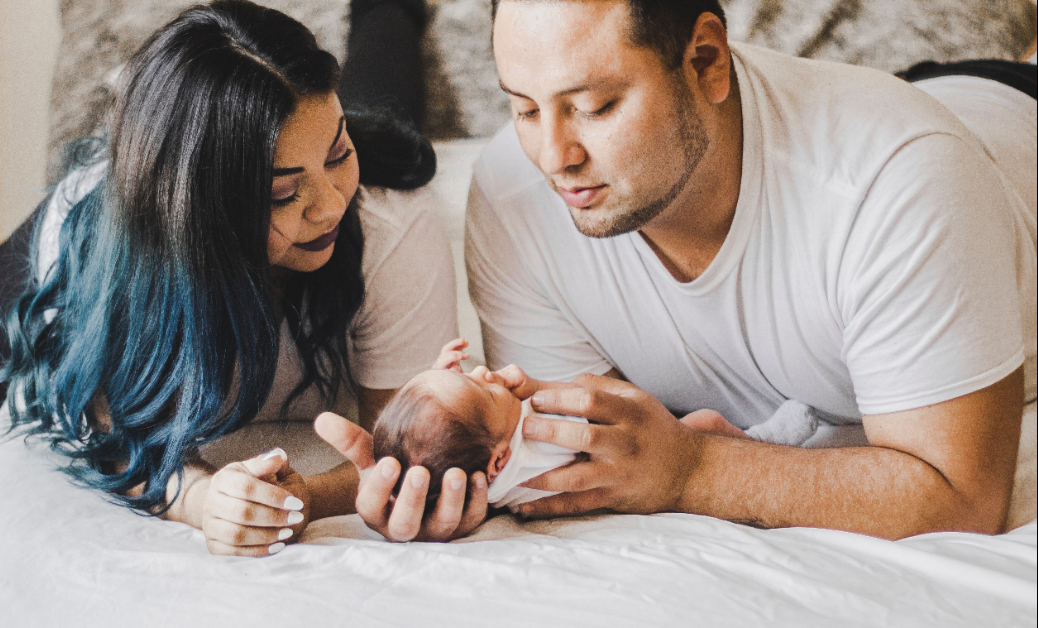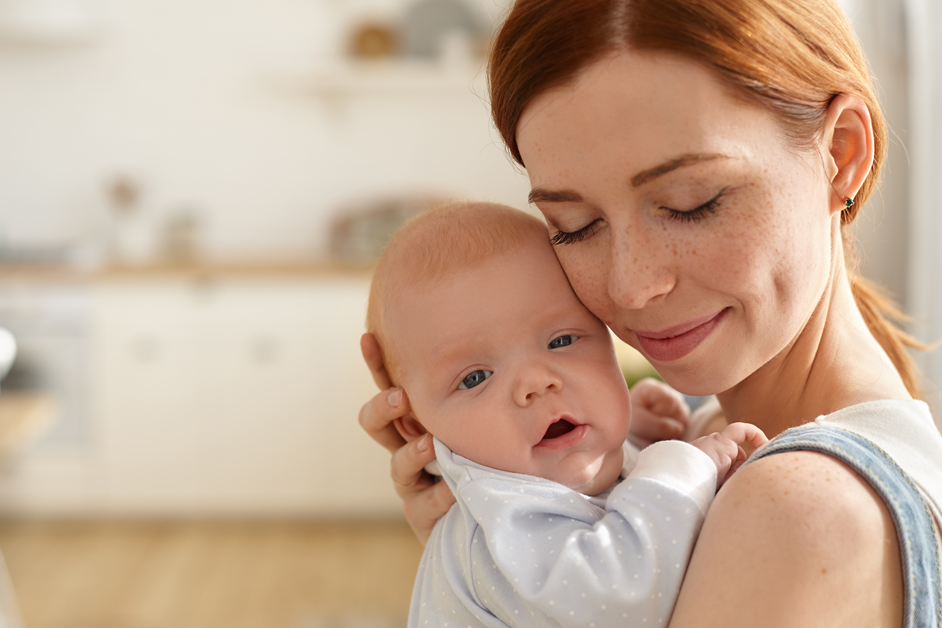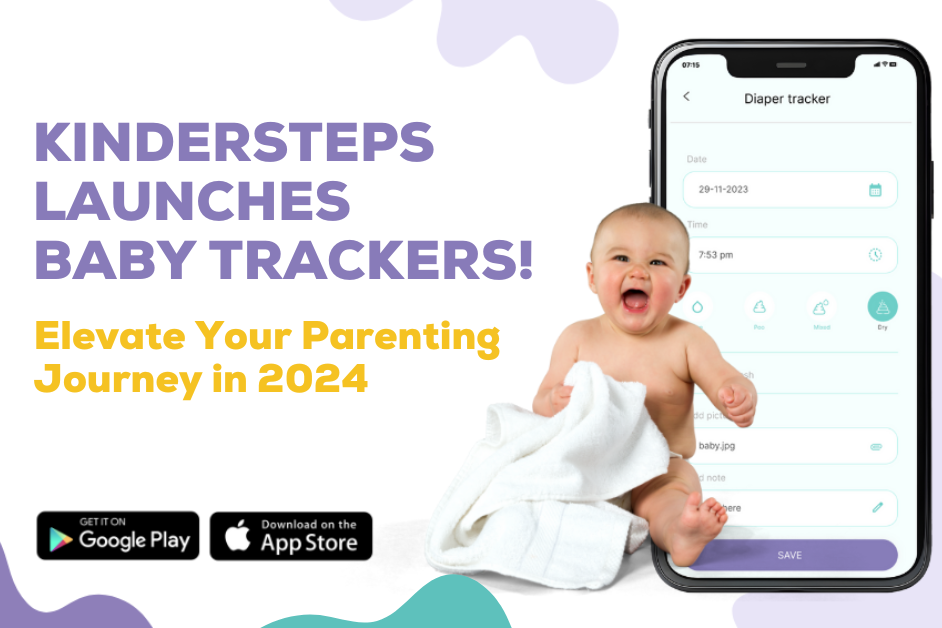The first few months with a newborn can be stressful and overwhelming for first-time parents. Where everyone will give you different tips on how to care for your newborn baby, and it might be tough to determine which advice to follow. Though it's tiring and difficult, it's also one of the loveliest and most rewarding experiences you're ever going to have.
Here are 7 effective tips to help you navigate those initial months as a first-time parent:
1. Handle your baby with care
We all know this one, but it’s essential to reiterate the importance even to our friends and family members when they handle the baby. A newborn baby is delicate and must be handled with extreme care.
Neck support: It's critical to make sure you're supporting their head and neck with one hand as their neck muscles are not yet strong enough to do it on their own. Only after 3 months of age will your baby’s neck be able to support its head. Hence, always cradle your baby's head whenever you hold them, or lay them down.
Never shake your newborn: Shaking can cause bleeding in the brain and even death. If you need to wake your infant, don't do it by shaking him/her. Instead, tickle your baby's feet, or ears or blow gently on a cheek.
Securely fasten your baby into the carrier, stroller, or car seat: Limit any activity that could be too rough or bouncy for your child.
Say ‘No’ to rough play: This would include activities such as being jiggled on the knee or thrown in the air.
2. Understand diapering and diaper rashes
If you're a first-time parent, you'll be surprised at how many diapers your child goes through in a day. To make things easy for yourself, try to stock up on diapers before bringing your baby home, get yourself a diaper genie, and an easy-to-use change table. Yes, this makes a huge difference. Be prepared for nappy rashes, newborns are prone to rashes as a result of skin irritants, diarrhea, or even illness.
If your baby already has a rash, don't forget to use a diaper rash cream prescribed by your child's pediatrician. It eliminates skin friction and provides adequate protection for the newborn. If the rash is not improving with the treatment prescribed or your baby develops bumps or slight bleeding, ensure to contact your pediatrician right away.
3. Understand the importance of feeding and burping your baby the right way
It’s important to feed the baby on time but breastfeeding isn't always an easy journey. So, think of ways to ensure success before you even give birth. Talk with friends who had a good nursing experience, ask your pediatrician for a lactation consultant's number or attend a La Leche League i.e a nursing support group meeting.
For the first six months, you should try your best to feed an infant only breast milk as it contains essential nutrients and antibodies for your baby's overall development. Also, remember to never lay your baby down immediately after feeding, but let them stay upright for a while. If you notice your baby spits up some milk after being breastfed, do not panic as it is normal.
While breastfeeding, babies also tend to swallow some air that forms gas and colic in their tummies. Hence, it is vital that you burp your baby after every feed, to avoid any tummy pain or uneasiness. To burp your baby, hold your baby up with his or her head on your shoulder, supporting their neck and ensuring the face is open. Now, gently pat in upward directions or alternatively rub the back with the other hand.
4. Know when to bathe your newborn and your bath time essentials
Giving a bath to your newborn can be challenging but should be done properly. You should give your baby a sponge bath until the umbilical cord falls off and the navel heals completely at approximately 1 to 4 weeks.
Keep all your bathing items ready beforehand. This would include;
A small tub with 3-5 inches of warm water.
A soft and clean washcloth.
A bar of mild baby soap and shampoo.
A soft towel.
Baby moisturizer to prevent dry skin.
A clean diaper, clean clothes, and a warm blanket.
Check the temperature of the water with your hand prior to putting your baby in. Now, using your hands, support your baby's head and use your other hand to slowly guide the baby in feet-first, up to the chest into the tub. Clean the baby's hair, scalp, face, neck, and any dried mucus that has gathered around the nose with the washcloth. Massage your baby's scalp gently using your fingers, paying special attention to the area above the fontanelles (soft spots) on the top of the head. Then rinse your baby’s body with lukewarm water. Wrap your baby in a towel after the bath. While bathing your infant, never leave the baby alone.
5. Understand nap time and what to watch out for
As a new parent, you may be surprised to learn that your newborn actually sleeps about 16 hours a day or even more! They normally sleep for 2 to 4 hours at a time and only wake up when they are hungry or wet. Therefore, you should wake your infant frequently for feedings throughout this stage.
It's important to always place babies on their backs to sleep to reduce the risk of SIDS (sudden infant death syndrome). Remember to change your baby's head position while they are sleeping to avoid flat patches on their head. Also, to avoid suffocation, make sure to put your baby to sleep on his/her back.
6. Seek help often
It will be challenging for you to care for your baby, but don't worry; you'll get better with practice. However, there is no harm in taking help when needed. You can take guidance from a family member, ask a friend for support or hire a nanny to help you out with the chores. It’s never wrong to ask for help.
7. Check for symptoms of overstimulation
Babies' cries are often misinterpreted as indicators of hunger or lack of sleep. However, this is not always the case, babies may also cry when they are overstimulated.
Although playtime is crucial for your newborn, too many activities can lead to overstimulation making it difficult to calm down your baby. If you find yourself in a similar scenario, take your infant to a quiet spot, and talk to him/her in a soothing way.
When you bring your infant home, you'll need to take care of a lot of things. From tracking your child's vitals, getting updates on expert parenting tips and tricks, to keeping note of all those precious moments through photos or videos that you can share with your friends and family in a private newsfeed, Kindersteps helps make every step count!
Download our free parenting app today.






.jpg?alt=media&token=166b64a9-274c-400c-95e4-baf0013e7e43)
